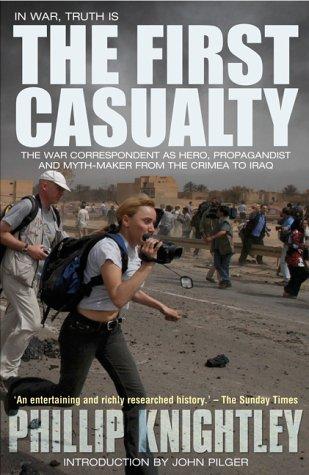Taschenbuch, 608 Seiten
Veröffentlicht von Andre Deutsch Ltd.

Taschenbuch, 608 Seiten
Veröffentlicht von Andre Deutsch Ltd.
The First Casualty when war comes, is truth," said American Senator Hiram Johnson in 1917. In his gripping, now-classic history of war journalism, Phillip Knightley shows just how right Johnson was. From William Howard Russell, who described the appalling conditions of the Crimean War in the Times of London, to the ranks of reporters, photographers, and cameramen who captured the realities of war in Vietnam, The First Casualty tells a fascinating story of heroism and collusion, censorship and suppression. Since Vietnam, Knightley reveals, governments have become much more adept at managing the media, as highlighted in chapters on the Falklands War, the Gulf War, and the conflict between NATO and Serbia over Kosovo. And in a new chapter on the post-9/11 wars in Afghanistan and Iraq, Knightley details even greater degrees of government manipulation and media complicity, as evidenced by the "embedding" of reporters in military units and the uncritical, …
The First Casualty when war comes, is truth," said American Senator Hiram Johnson in 1917. In his gripping, now-classic history of war journalism, Phillip Knightley shows just how right Johnson was. From William Howard Russell, who described the appalling conditions of the Crimean War in the Times of London, to the ranks of reporters, photographers, and cameramen who captured the realities of war in Vietnam, The First Casualty tells a fascinating story of heroism and collusion, censorship and suppression. Since Vietnam, Knightley reveals, governments have become much more adept at managing the media, as highlighted in chapters on the Falklands War, the Gulf War, and the conflict between NATO and Serbia over Kosovo. And in a new chapter on the post-9/11 wars in Afghanistan and Iraq, Knightley details even greater degrees of government manipulation and media complicity, as evidenced by the "embedding" of reporters in military units and the uncritical, openly patriotic coverage of these conflicts. "The age of the war correspondent as hero," he concludes, "appears to be over." Fully updated, The First Casualty remains required reading for anyone concerned about freedom of the press, journalistic responsibility, and the nature of modern warfare.